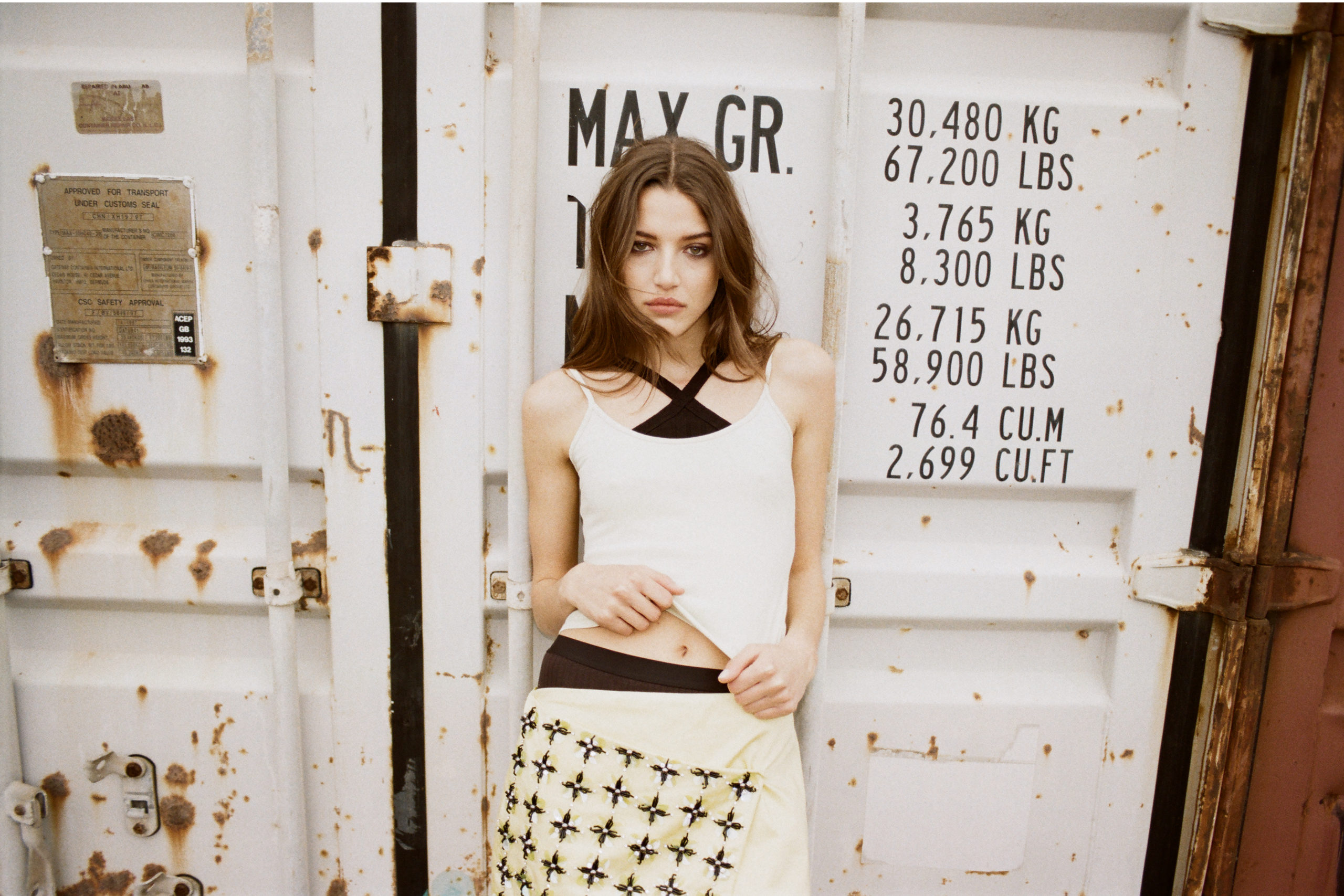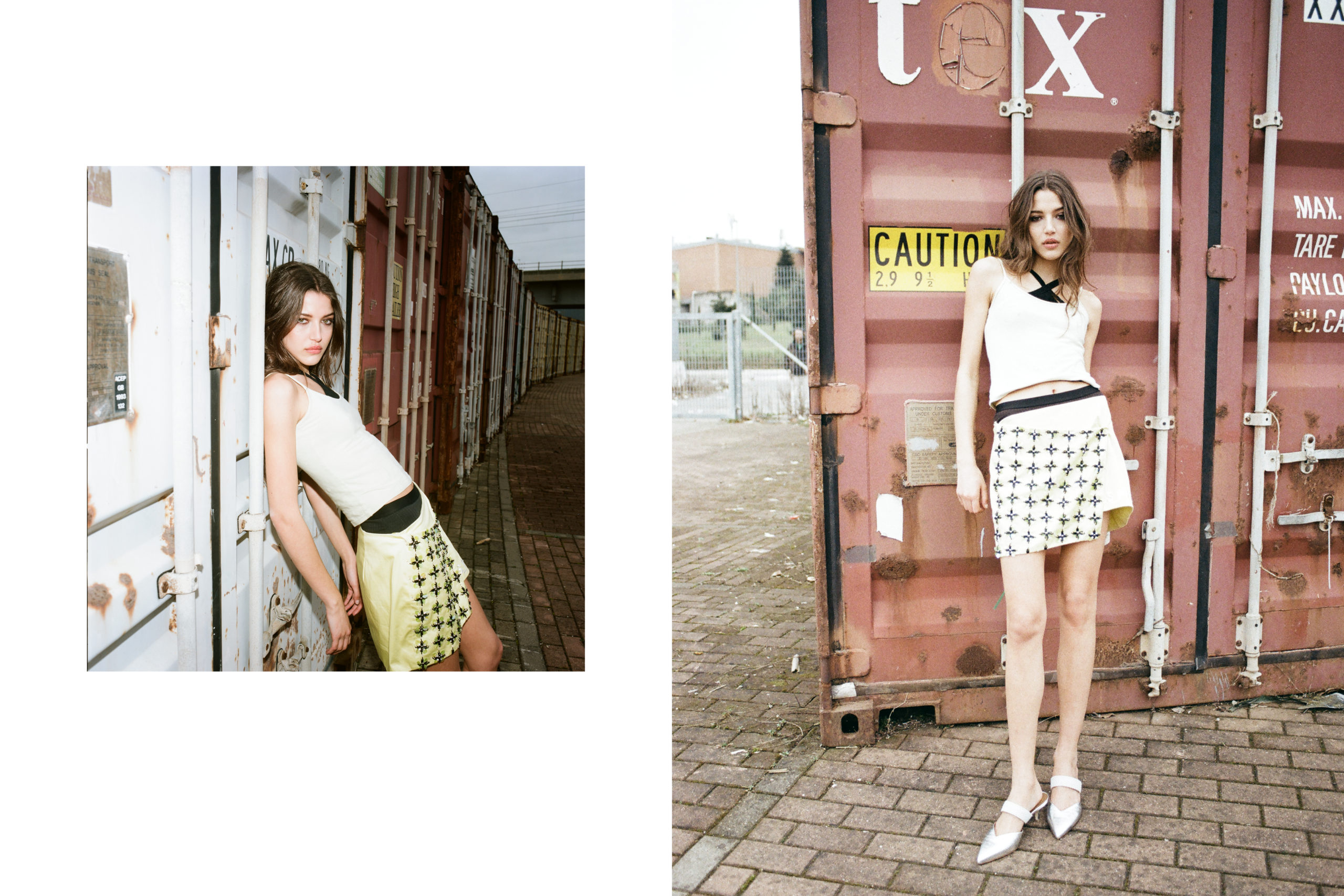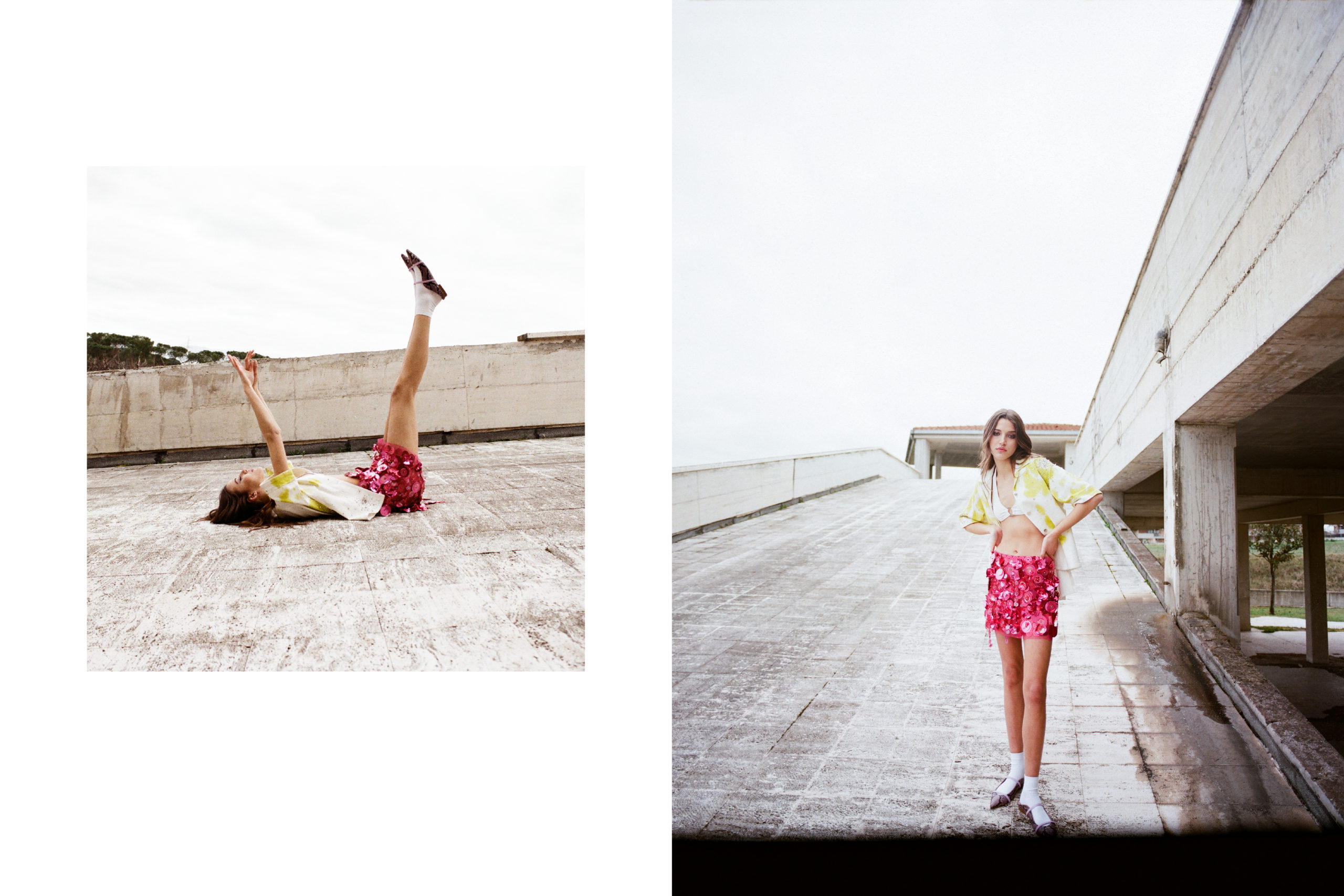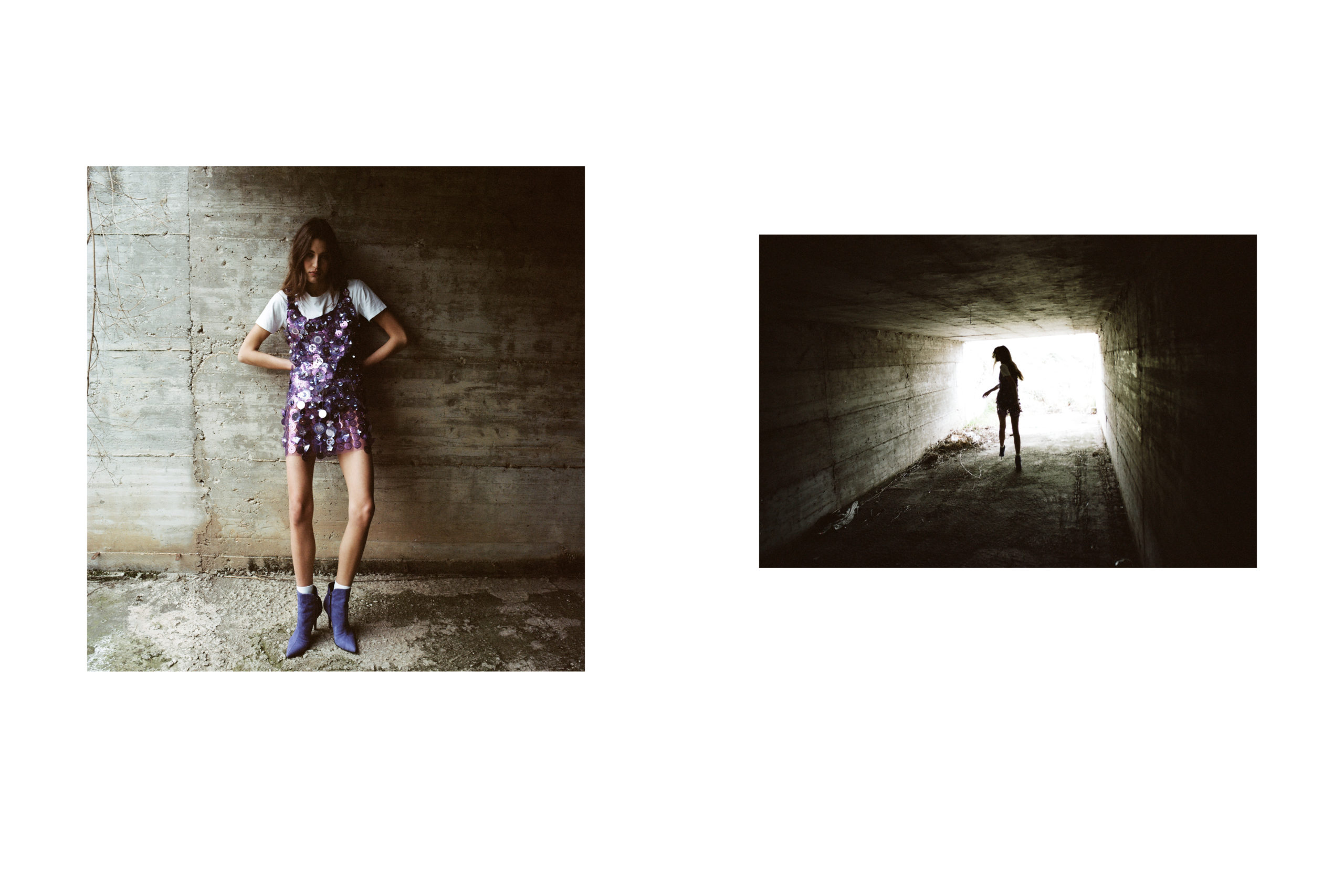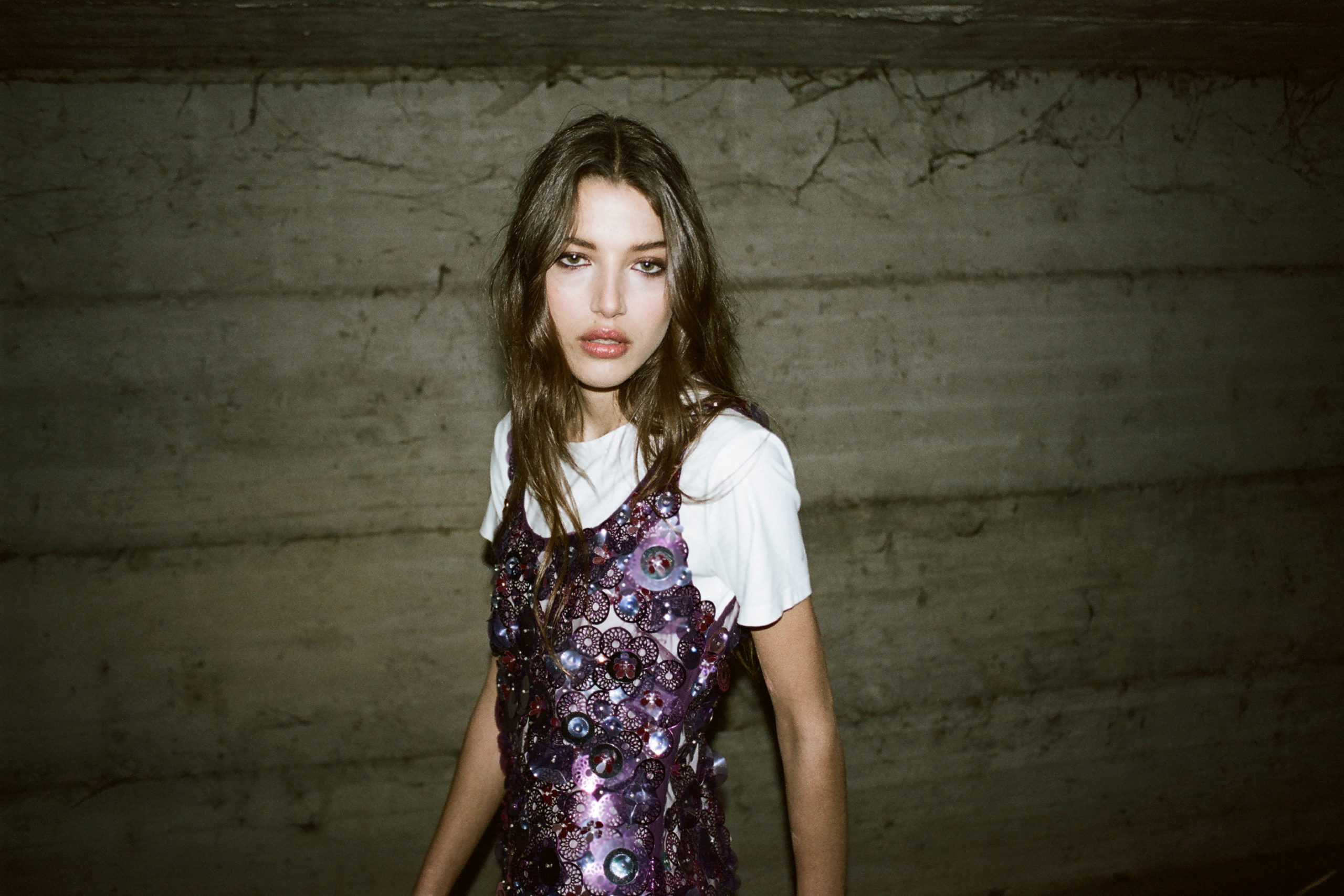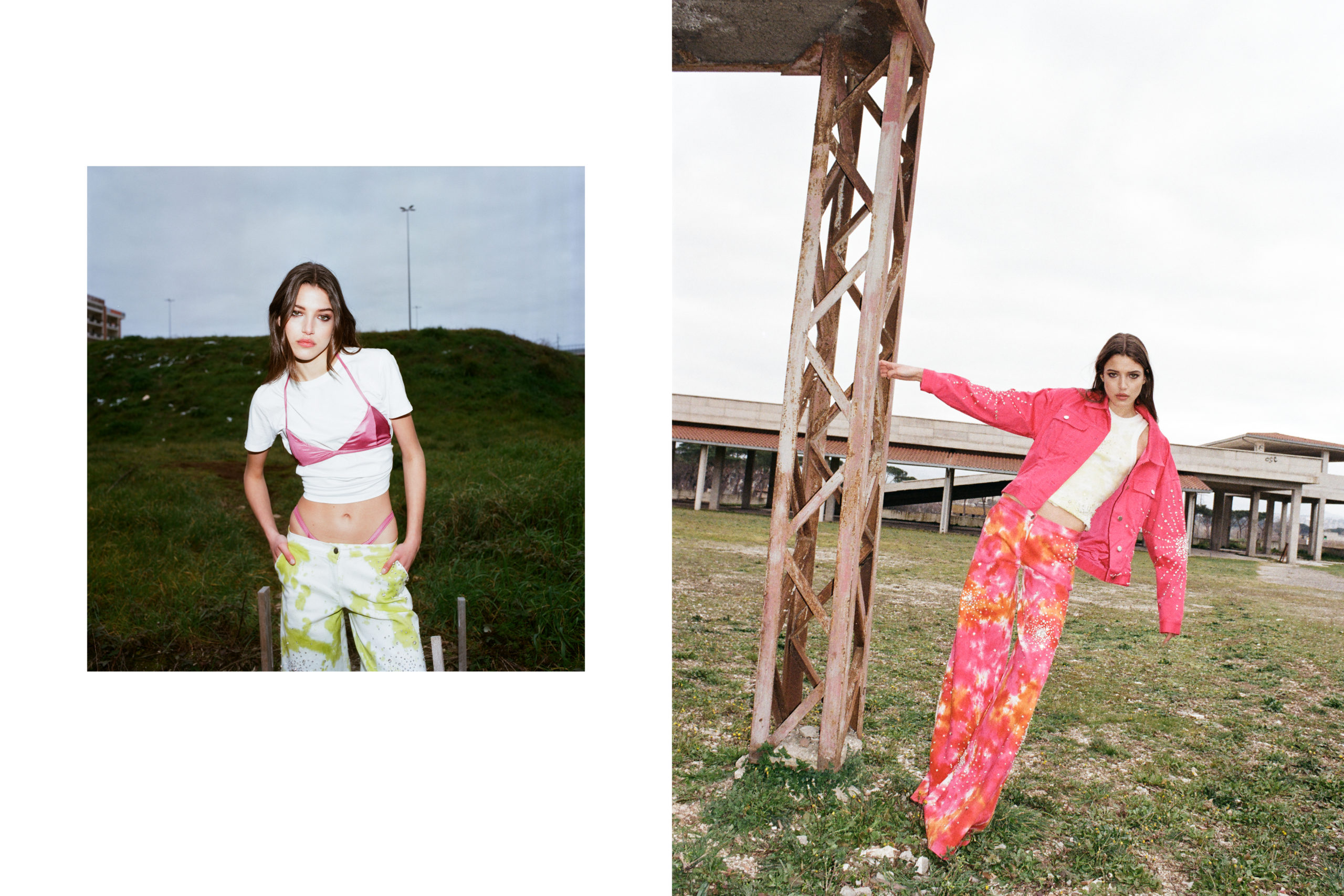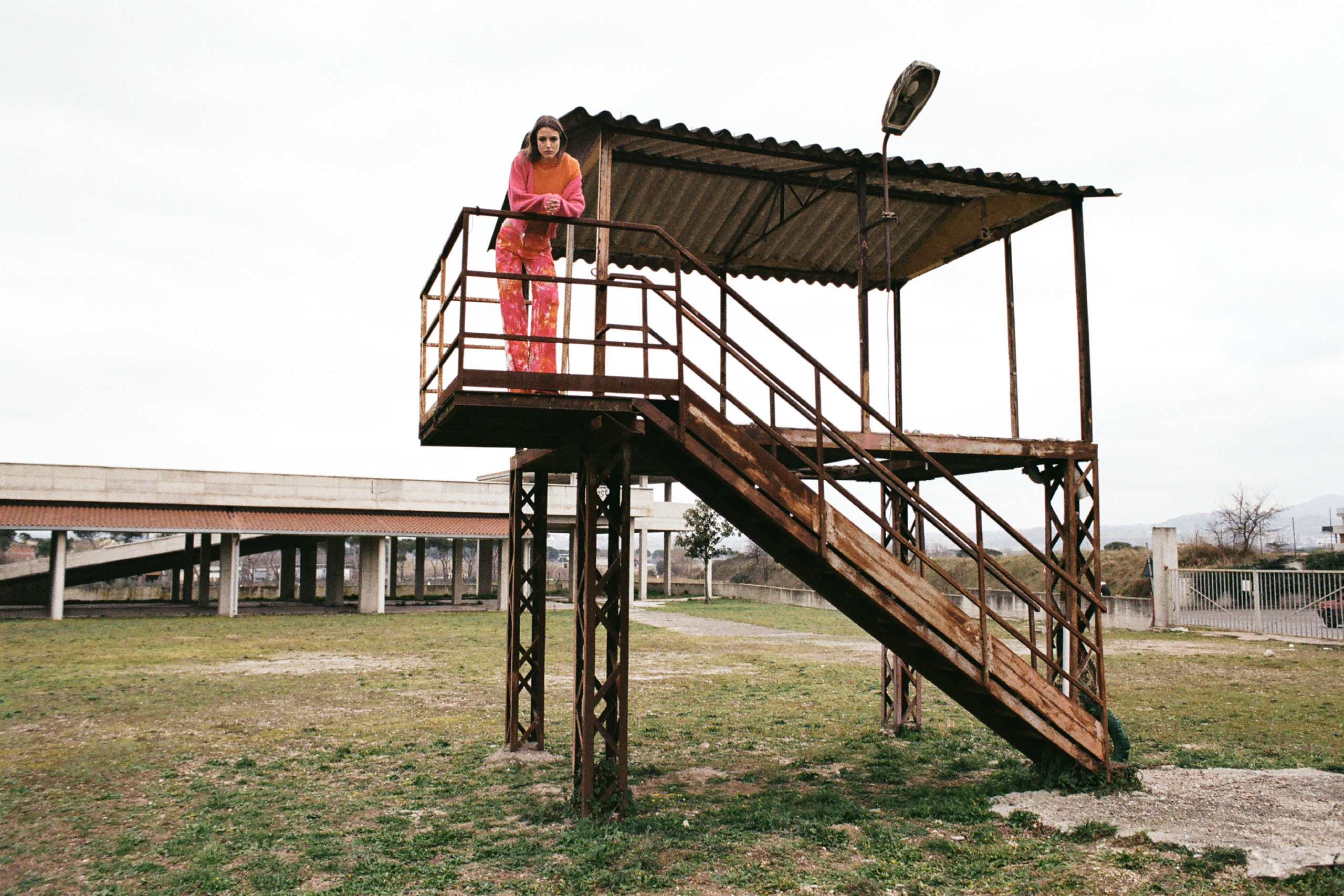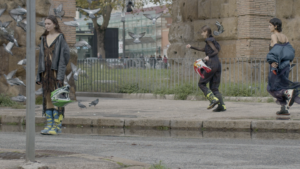‘GREY HERITAGE: “Des Phemmes is my love letter to women” – Interview with Salvatore Rizza’
Photography Niccolò Berretta
Art Direction Alex Sinato
Styling Caterina Egidi
Interview by Romina Piperno
Model Martina Mattioli @ Nur Model Managment
Make-up and Hair Marta Ricci for Simone Belli Agency
Fashion Assistant Irene Lomellini
Film Process IlColore
Editor-in-chief Valentina Ilardi
A new GREY project that gives voice to the far-sighted fashion generation of designers and emerging brands that are establishing themselves in the contemporary scene.
For the #01 edition, we were captured by the radical, imaginative and fairy signature of Des Phemmes, the brand founded by Salvatore Rizza, who opened the doors of his creative world inspired by the endless cool spirit of ‘90s-era. Strength, sensuality and freedom are interlaced in ultra-feminine dresses and flow into Des Phemmes’ aesthetic for a design that enhances and highlights the body.
Salvatore you’re the designer behind Des Phemmes – a brand that reinvents Italian fashion with your magnificent silhouettes. How much of your past is stitched in your garments?
All of my past is weaved into my work. I worked closely with Giambattista (Valli) for several years, so his aesthetic background and notions of feminine proportion are instilled in me. Another crucial part of my past is that of my mother and my sister, and of all the female friends I had growing up. Des Phemmes links back to the women around me, and my approach to fashion was born out of my relationships with them, and out of my attempt to interpret their attitudes and behaviors. Whenever I’m asked if I think of a specific woman when designing, I say no – I have all of them in mind in each of my endeavors.
Des Phemmes is truly connected to everyone around me. I’m Sicilian, so that means bread, bread, wine and wine… not much intellectualism! (He smiles). Des Phemmes exists because the women in my past have inspired its aesthetic vision – I owe it all to the women in my past, and those in my present as well. Many of my female friends have supported me from the outset; one worked as a stylist for me, another did photography, yet another was in charge of make-up… The brand is successful today because the women close to me believed in it – I wouldn’t be here today without them. Des Phemmes is my love letter to women.
So is it safe to say your project is a psychological analysis and celebration of women in your life?
Yes, I’ve always loved feminine attitude. It’s interesting to note that, when wearing a garment that makes a woman feel good, she moves in a totally different way. I notice this whenever I come up with the initial looks before the look book – when a model wears a piece, it’s immediately clear whether she likes it or not. How she walks and how she moves exhibits a new confidence that she would not otherwise have.
I look at it as a sort of research that has been neglected lately; that aspect of fragility – not in terms of being delicate, or failure – but rather as an innate trait within women, just the same as that which is found in men. Men generally attempt to cover it with their physicality, but with women it usually remains hidden. My way of dressing women is a far cry from power dressing – I find the latter too contrived. I prefer sensuality, but in a more muted way. When women wear Des Phemmes and tell me ‘I felt like a knockout yesterday,’ I tell myself that I have done my job.
Your brand has a recognisable aesthetic, but without explicit references. What are your strengths, and what would you like to express through your work?
Des Phemmes doesn’t have any clear references, simply because when developing my collections I work in an architectural fashion: I begin with pure, white shapes, and once they work, I start decorating. I learned this from Giambattista Valli – he always said that fashion is like a house. You have to build it well, and if at that point you decide to make baroque, minimalist, or brutalist aesthetic choices, it will always work, as long as the scaffolding is there.
Des Phemmes exhibits a credible harmony between couture and streetwear, a perfect mix between feminine complexity and the simplicity of daily life. In your opinion, how much does contemporary society still need to align itself with the multifaceted nature of women?
It totally should. Unfortunately, the problem with today’s society is that women are read in a single key. Stereotypes are attributed to every single woman, as if they were boxes to fill. It’s mortifying. Stereotypes in general are mistakes – they shouldn’t exist. In my latest collection, I have tried to show mistakes as something that characterise you, making you unique. Your flaws are elements that make you distinguishable and unique in your being.
I try not to have a vision that is too masculine, feminine or androgynous. I seek to mix opposites – the ambivalence of every human being stems form an extreme masculine pole, right through to an extreme feminine pole. Everything we are lies between those poles. It doesn’t matter whether male or female, what counts is the human being, and most of all, whether they feel good, and at ease.
The most important type of wealth in life is being happy and serene – perhaps even small moments of joy arising from wearing something that makes you feel good. If I can be the catalyst for just one moment of joy for someone, that’s enough for me.
The world seems to be regressing. In a surreal climate, how much can fashion influence it, and how much do you think it can be influenced in this respect?
The predominant way fashion is influenced is economically. At present, I see how the highly powerful Russian market has gone down to zero. At the same time, by closing the Russian market, fashion demonstrates – in a practical way – its sensitivity to this, and it’s a very strong signal. Even conceptual messages are strong in that sense. What fashion did in the 60s and 70s onwards was that it became the mirror of society, so you understand that in every case, it’s important to put yourself out there.
The simplest thing we have to do is support through fundraising, but it’s an extremely delicate issue as our world is very ephemeral. For instance, while at the fashion shows in Paris and I was very much aware that 2000km away from me, people were dying in a war. As Pierpaolo Piccioli once said, what we can do on our side, aside from charities, is to continue working as a company, so that we can become an economic force with the power to offer concrete support.
What serves as your amulet?
[…He smiles, bends down and welcomes his dog Oliva between his arms, telling me that she is his amulet and his assistant]. The greatest amulet is the love and affection surrounding me. These are my greatest wealth – without it I would not have been able to accomplish any of this. The people around me are my amulets.


